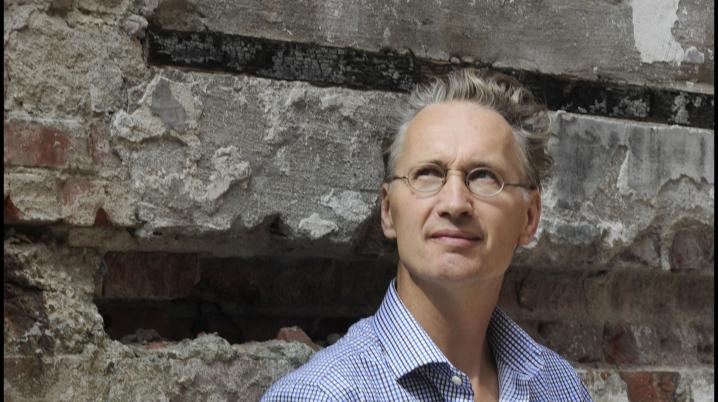
"Dutch and Hungarians make the perfect combination"
By Bambi Bogert
Fifteen years ago, Dutch author Jaap Scholten moved to Hungary, together with his family. At Europe Day 2018, his keynote speech reflected on the differences between Eastern and Western European culture, and – in accordance with the theme of the day – what it’s like to step outside your comfort zone.
What can Westerners learn from Hungary and other Eastern European countries?
Their chivalry and valor, their love of tradition. They missed out on the revolutionary sixties, the entire hippie movement. So society is still much more conventional and orderly, it’s a bit like stepping back into the fifties. There’s also an incredible sense of craftsmanship, in every imaginable field. From violinists to builders. They still follow the master-apprentice principle, where students are taught by experts and take years to hone their craft. Sadly this is virtually obsolete in today’s Western Europe. But in Hungary, you’ll find the most amazing carpenters, painters – you name it. Their general school system is very Prussian – incredibly strict. The best pupils are sent away to special schools and turned into geniuses.
“Author Timothy Snyder describes the countries between Russia and Germany as ‘Bloodlands’. Countries where history has wreaked havoc for centuries. Hungary has brought forth thirteen Nobel Prize winners.”
“It’s a general bias: everyone wants to go West and nobody wants to go East. East is full of savages. But this idea needs to change. To the East lies a world that we have lost.”
– from Jaap Scholten’s keynote speech
It sounds like quite a productive system
On the contrary. People are unwilling to take any initiative. In the Netherlands, we have a very practical attitude: we like to get the job done and we don’t like to overcomplicate things. Hungary is the exact opposite. Hungarians see nothing but obstacles, they’ll want to discuss every possible issue to no end. Failure is always close at hand, and its consequences can be grave. Society is extremely top-down and hierarchal. I think it’s all to do with Communism. During that period, people learned that it was better to do nothing at all, than to risk making a fatal error. And so they are always on the lookout for any excuse that will allow them to opt-out.
“For someone like me, who grew up in the safe, humdrum tranquility of the Netherlands, it’s hard to imagine, let alone comprehend, what it really means to grow up under a dictatorship.”
– from Jaap Scholten’s keynote speech
You make it sound terrible!
Well, it’s a pretty dreary place. Man is a wretched creature, life is an uphill battle and in the end, we’re all screwed anyway - that’s the general mentality. As a Dutchman, I’m seen as Mr. Happy-Go-Lucky. That said, the Hungarian mindset teaches people to become deep thinkers. Hungarians like to think ahead – way ahead – about anything that might transpire. No wonder they’re also great chess players. And when they finally do embark on a project, they’ve thought of every little detail, and already worked out the solution to any issues that might arise. Whereas we tend to jump in feet first and hope for the best. Actually, Dutch and Hungarians make the perfect combination.
“Because people often weren’t at liberty to speak freely in Eastern Europe, metaphors were able to blossom. Communism forced people to handle language with care. Humor was omnipresent and it had to be clever. Literature was and is taken seriously. Writers and poets are taken seriously.”
– from Jaap Scholten’s keynote speech
How do these typical Hungarian traits impact arts and culture?
One of the few advantages of Communism is the fact that it made arts and culture accessible to everyone. In the Netherlands, the opera or theater is still somewhat elitist. But in Hungary, it really is a part of general culture. You can still buy tickets for the opera that cost next to nothing. And they invented the Kodály Method, named for the Hungarian composer. It’s a fantastic approach to music education that was taught in every school. I’m pretty useless when it comes to performing arts: I don’t play any instruments and I can’t sing to save my life. But in Hungary, almost everyone can sing beautifully, or play piano or the violin. I think that’s wonderful.
“Politics isn’t bringing us any closer together, the European Parliament isn’t succeeding either, the Council of Europe appears to be partial to Caviar Diplomacy from the East, the church no longer plays any role of importance, corporations only care about their quarterly figures. The arts can, and must, build these bridges.”
– from Jaap Scholten’s keynote speech

